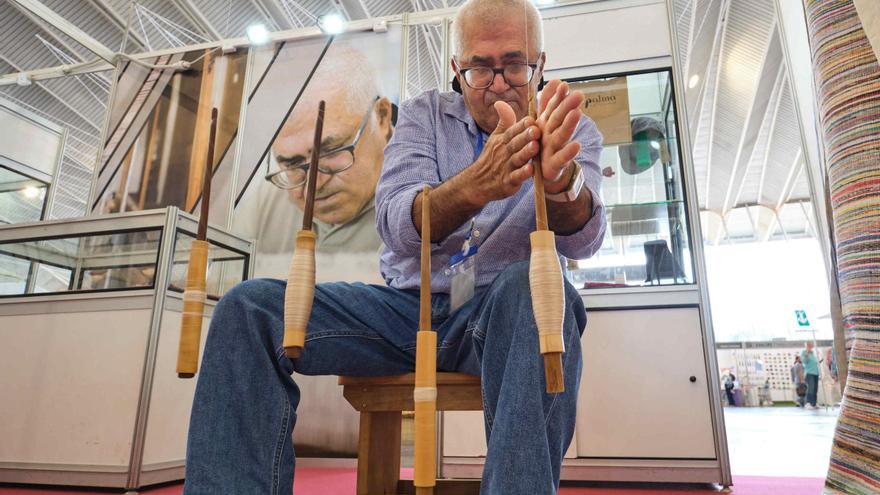
He Fairgrounds Tenerife hosted for two days, Tuesday and Wednesday, the first annual test to obtain the artisan’s license. They presented themselves 90 applications from applicants with the objective of receiving the official certificate in one of the 31 trades in the catalog offered by the Council.
The corresponding exams took place during both days. Obtaining the artisan’s card certifies that the people who obtain it are prepared for the correct execution and marketing of products made with the techniques of the corresponding trades.
Of the 90 people who took part in this call, 69 were women and 21 men. Regarding the areas, 47% belonged to the Metropolitan Area, 20% to the southern part of the Island and 33% reside in the municipalities of the north of Tenerife.
The advisor of Employment and Education, Efraín Medina, shows his satisfaction “for the number of jobs that were presented and for the fact that many people have responded, especially those under 40 years of age in traditional activities because that guarantees continuity.”
Medina understands as “necessary” thate Tenerife craftsmanship maintains the essential quality to guarantee its valuation as essentially special items and they are the origin of important commercialization.
The counselor, linked for decades to a craft activity of which he is a firm defender, considers that to maintain that quality “it is necessary that the people who obtain the license reliably demonstrate the knowledge and skill of the trade for which they apply.” It is the objective, adds Medina, “to continue maintaining the pride that being a National Crafts Award means to Tenerife.”
The trades called on this occasion in the double day were Patchwork, Embroidery, Ceramics, Ceremony, Cane basketry, Palm basketry, Fabric decoration, Bookbinding, Felt, Artificial flowers, Crochet, Printing and engraving, Percussion musical instruments, Jewelry , Lutier, Macramé, Leather goods, Miniatures, Modeling, Dressmaker, Doll making, Goldsmithing, Paper and Cardboard, Leggings, Recycling of materials, Rosettes, Tapestries, Furniture upholstery, Traditional costumes, Weaving and Shoemaking.
Efraín Medina remembers that the deadline to present the Applications for the next call open on March 15 and end on April 15. Registration can be carried out at the Cabildo’s electronic headquarters or at the Citizen Service Offices. The documentation to be presented is an application; DNI, NIE or passport of the applicant; certificate of residence or registration from the town hall; memory of the artisan activity carried out and images of the workshop or workplace and production.















